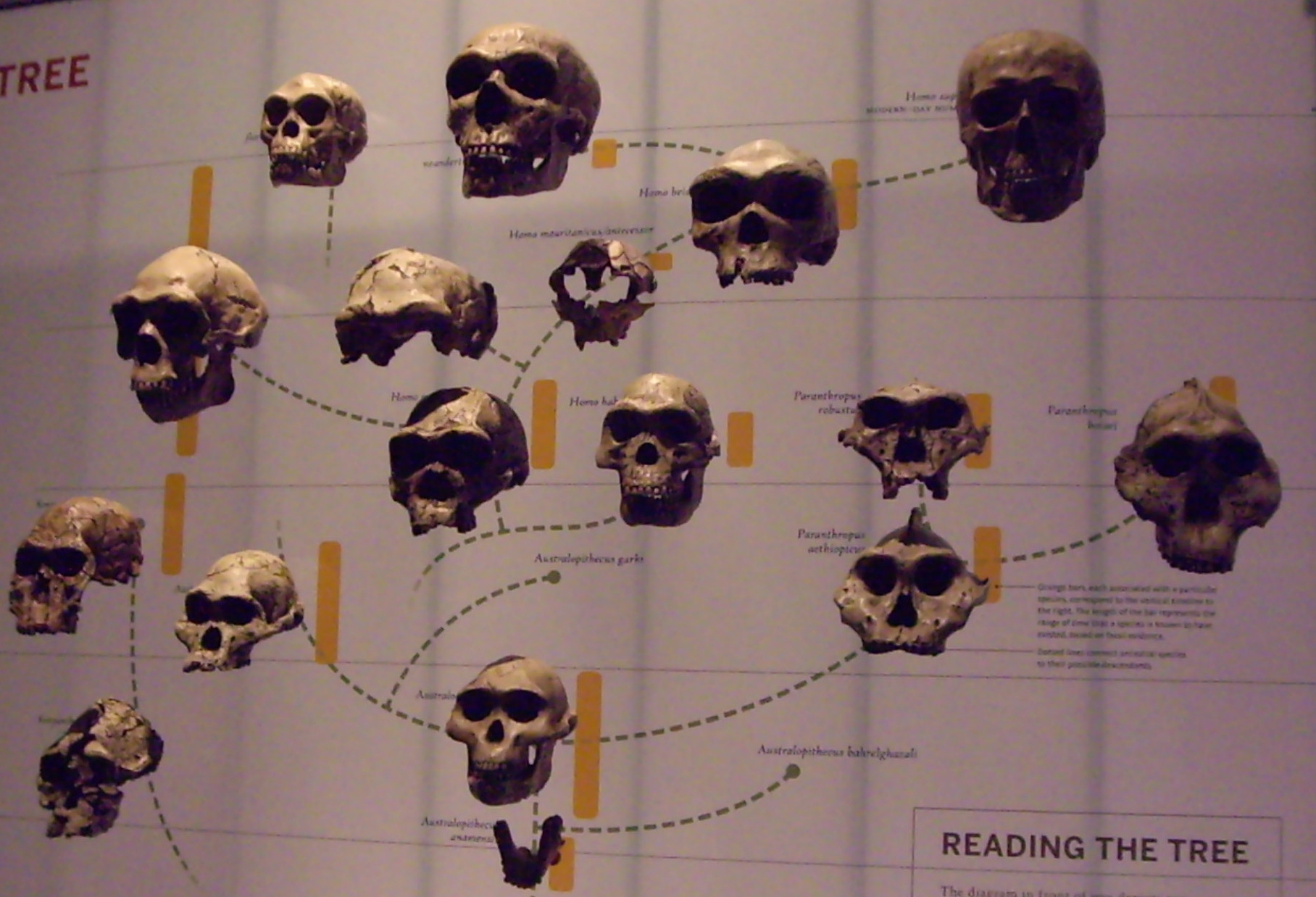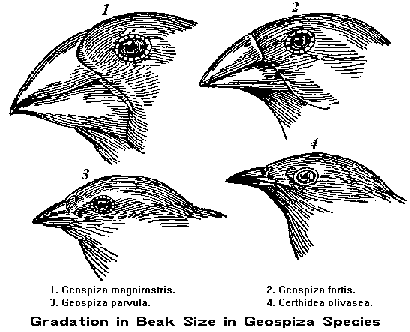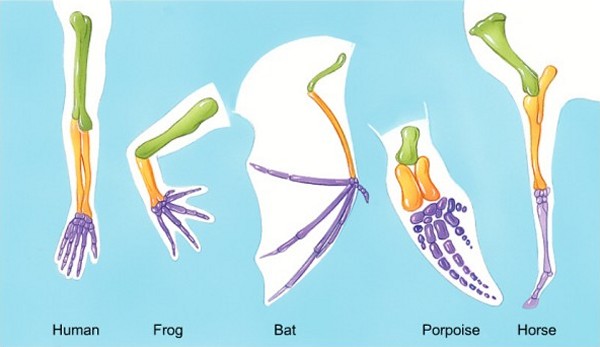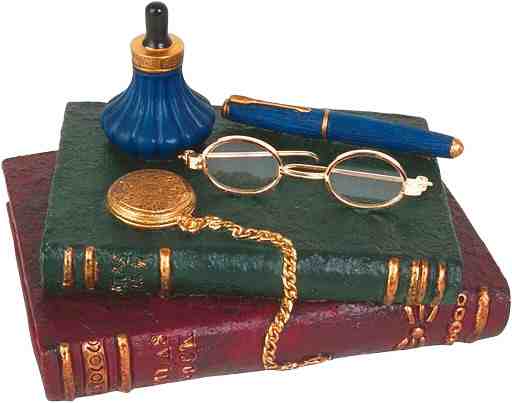 One Long Argument
One Long Argument 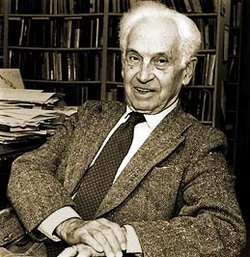
One Long Argument, Ernst Mayr, 1991.
"The basic theory of evolution has been confirmed so completely that modern biologists consider evolution simpy a fact."
Preface.
On the Origin of Species, 1859.
- Who is Darwin?
- Confronting the Creationists: The First Darwinian Revolution
- How Species Originate
- Ideological opposition to Darwin’s Five Theories: Darwin’s five conceptual breakthroughs
- Struggle Against the Physicists, Philosophers, and clerics
- Darwin’s Path to the Theory of Natural Selection: How he developed natural selection
- What is Darwinism?
- A Hard Look at Soft Inheritance: Neo-Darwinism.
- Geneticists and Naturalists Reach A Consensus: The 2d Darwinian Revolution
- New Frontiers in Evolutionary Biology.
"Instead, I have concentrated on the mechanisms of evolution and on the historical development, from Darwin on, of the major concepts and theories of evolutionary biology."
Mayr, Preface, p. ix.
Chapters 1, 2, 3, 4, 5, 6, 7, 8, 9, 10.
The family tree of the genus Homo, to which human beings belong because we descended from a common ancestor.
His, Ernst Mayr's, reasons for writing are:
Because Charles Robert Darwin "raised some of the most profound questions about our origins that have ever been asked, and as a devoted and innovative scientist he provided brilliant, often world-shattering answers."
Page xiv.
Chapters 1, 2, 3, 4, 5, 6, 7, 8, 9, 10.
Preface
Darwin launched a profound revolution in biology and our worldviews because of the philosophical shift that his and Wallace's ideas suggested about humans and life on Earth.
Mayr's aim:
" . . . a volume . . . useful to students and and lay people broadly interested in the role of Darwin's thought is the history of ideas. . . . represents, . . . a mature reflection on Darwin's thought – one that emphasizes previously neglected aspects of his work and clarifies controversial or confused ideas."
Chapter One
"Darwin did not publish his theories about evolution for another twenty years, even though he wrote some preliminary manuscript essays in 1842 and 1844."
p. 6.
"Wallace had arrived at essentially the same theory of evolution by common descent through natural selection as he [Darwin]."
"The impact of the Origin was enormous."
"Every modern discussion of man's future, the population explosion, the struggle for existence, the purpose of man and the universe, and the human place in nature rests on Darwin."
p. 7.
Chapter Two 
"When Darwin decided in 1827 to study for the ministry, he too was an orthodox Christian."
p. 13.
"As I did not then in the least doubt the strict and literal truth of every word in the Bible."
Autobiography, p. 57.
"And yet it is evident that many of the experiences he had during the five years of his voyage raised the first doubts in his mind about his religious beliefs."
p. 13.
"In all the writings of the naturalists, geologists, and philosophers of the period, God played a dominant role. They saw nothing peculiar in explaining otherwise puzzling phenomena as being caused by God, and that included the question of how species originate."
p. 14-15.
Chapters 1, 2, 3, 4, 5, 6, 7, 8, 9, 10.
Chapter Three 
How Species Originate
After his crucial conversation with John Gould about the Galapagos mockingbirds in 1837, Darwin continued to struggle with a problem of how to define a species, but for that matter, so did virtually all other naturalists during the ensuing 150 years.
Indeed, the longer Darwin struggled with these concepts, the more he seemed to be confused."
pp. 26-27.
The competing concepts were a cause for such confusion:
Platonic "types" hence typological argued that "an entity that differs from other species" does so "by constant diagnostic characteristics.
Nominalists insisted "only individual objects exist in nature."
Indeed,"Species, . . . are merely arbitrary mental constructs."
pp. 27-28.
Evolutionary Species Concept
"An evolutionary species is a lineage (an ancestral-descendent sequence of populations) evolving separately from others and with its own evolutionary role and tendencies."
p. 28.
The Biological Species Concept
"populations of different species coexist but do not interbreed with each other."
Darwin had (by 1837) "developed a species concept based on reproductive isolation."
"But then he became confused, particularly after he tried to apply his zoological findings to plants "p. 29.
The answer which Darwin found was hat species not only evolve in time but also multiply. Speciation, since Darwin has come to mean the production of new, reproductively isolated populations.
p. 31.
Chapters 1, 2, 3, 4, 5, 6, 7, 8, 9, 10.
Chapter Four
"To a large extent these differences of opinion are due to a failure of these students of Darwin to appreciate the complexity of his paradigm."
"In reality, Darwin's 'theory' of evolution was a whole bundle of theories, and it is impossible to discuss Darwin's evolutionary thought constructively if one does not distinguish its various components."
p. 35.
". . . cogent reason . . . is that organic evolution consists of two essentially independent processes, as we have seen: transformation in time and diversification in ecological and geographical space. These two processes require a minimum of two entirely different independent and very different theories."
pp. 35-36.
five concepts and the last is "natural selection"
pp. 36-37.
For Darwin himself these five theories were apparently a unity, and someone might claim that indeed these five theories are a logically inseparable package."
"This claim is however refuted" by the evidence from usage of the terms in vogue then and what we have discovered and know to be genetically accurate today.
p. 37.
External factors in Scientific Revolutions,
there exist external socioeconomic factors and ideological factors that have divergent impacts on scientific discoveries.
p. 39.
The ideology permitted disputes over Darwin's population thinking because it was the opposite of the essentialist or typological thinking.
p. 40-41.
Many of Darwin's contemporaries who accepted the fact of evolution nevertheless were incapable of population thinking, owing to their ideological commitment to essentialism. . . . they accepted instead a concept of evolution based on the sudden production of new species through saltations."
p. 42.
Darwin's development in thought lead to a new view. He "introduced" the idea of "variational evolution" as he struggled with comprehending the differences between the gradual process of change, or gradualism; as opposed to more rapid changes in the characteristics of species.
Saltation means a jump, or (quanta) break; whereas gradual change is virtually undetectable in the present.
"Natura no facit saltum." Is Latin for Nature makes no great leaps. Referring to 'the sudden origin of new kinds."
p. 42-47.
Sand ripples are an example of geological saltation.
Chapter Five 
"Darwin's empirical researches led to results that were in conflict with the most basic assumptions of physicalism."
physicalism now is the belief that everything is physical, or is at least conditioned (based on) the physical character of the universe's material existence. Thus life, mental symbolism and language, or social relations all emerge from the physical, much as Thales in ancient Ionia attributed to water the origins of the world.
p. 48.
Sir John Herschel son the famous astronomer said – or so Darwin believed him to have said – commented that speciation due to natural selection as merely a random process was equivalent to proposing "the law of the 'higgledy-piggledy.' By that criticism Herschel meant that the Darwin's theory was more confusing than it was illuminating.
Darwin thought that the phrase was a sign of Herschel's contemptuous opinion.
Yet Mayr shows the phrase is an example of how Darwin's probabilistic theory was so alien to physicists of that day such as Herschel, that they could not conceive of randomness' role in an otherwise orderly nature as could be seen in the movement of the heavens.
The role Darwin assigned to chance has never been properly analyzed."
". . . strong a role in evolution was played by chance. In the case of variations, he distinguished between those being accidental as far as their 'purpose' or selective values is concerned, and others that are 'accidental as to their cause of origin'."
". . . he . . . was aware of chance (stochastic) processes at the organismic level." [that is the level of individuals]
p. 49.
"Final causes, however, are far more plausible and pleasing to a layperson than the haphazard and opportunistic processes of natural selection. For this reason, the belief in final causes has had a far better hold outside of than within biology."
"The conclusion of science has been that final causes of this type do not exist."
p. 66.
Chapter Six –  is a crucially significant exposition of:
is a crucially significant exposition of:
natural selection | the struggle for existence | balance of nature | animal breeding | recombination
"natural selection is really a two step process, the first one consisting of the production of genetically different individuals (variation), while the survival and reproductive success of these individuals is determined in the second step, the actual selection process."
p. 68 (repeated on p. 88).
That natural selection "it is actually itself a small package of theories."
- perpetual existence of reproductive surplus
- the continuing availability of great genetic variability
- the heritability of individual differences
- mere reproductive superiority is selected for (sexual selection)
p. 68.Darwin became an evolutionist . . . . Certainly by July 1837 he had firmly accepted evolution by common descent."
"His new interpretation of the world consisted not only in replacing a static or steady-state world by an evolving one but also, and more important, in depriving man of his unique position in the universe and placing him into the stream of animal evolution."
p. 69.
1838, natural selection,
"Indeed, the concept of natural selection was so strange to Darwin's contemporaries when he proposed it. . . .Nearly three generations passed before it became universally accepted even among biologists."
"It was a most daring innovation, since it proposed to explain by natural causes, mechanically, all the wonderful adaptations of living nature hitherto attributed to 'design.' "
"Darwin became an evolutionist . . . . Certainly by July 1837 he had firmly accepted evolution by common descent."
"His new interpretation of the world consisted not only in replacing a static or steady-state world by an evolving one but also, and more important, in depriving man of his unique position in the universe and placing him into the stream of animal evolution."
p. 70.
Malthus, ". . . a little nudge that pushed Darwin across a threshold he had already, reached."
p. 71.
p. 72.
"The trials and errors of Darwin's gradual approach."
"A. R. Wallace used them in exactly the same way as Darwin."p. 73.
"Darwin's beliefs changed moderately or drastically in four areas:"
"the concept of uniqueness of every individual."
"A shift from soft to hard inheritance."
"A changing attitude toward the balance of nature."
"The gradual loss of his Christian faith."
pp. 74-75.
"no one clearly perceived the great check amongst men." As had Malthus.
" . . . that exponential population growth combined with a fixed amount of resources would result in a fierce struggle for existence..
This phrase was used divergently; "in different senses by different authors.""
pp. 75-77.
The balance of nature
" . . . nothing in nature is too much, nothing too little, everything is designed to fit with everything else.
"The whole economy of nature forms a harmonious whole that can in no way be disturbed."
The idea is so powerful as to ignore the possibility of extinction or extirpation of species.
"Cuvier . . . . transferred the same concept to the structure of the organism, which he visualized as a 'harmonious type' in which nothing could be changed."
". . . .so perfect that any change would lead to deterioration."
p. 77.
Two opposing interpretations are possible:
1) Benign: Natural Theologians professed as did Herder struggle produced "a balance of forces which brings peace to creation."
2) "Warring of the species" created by scarcity, parasitism and predation a "far less benign interpretation."
p. 78.
By necessity, accepting evolutionary thinking undermined a continued adherence to a belief in a harmonious universe.
pp. 78-79.
The main function of this struggle is to correct disturbances in the balance of nature, but it can never lead to changes; on the contrary, it is a device to preserve a steady-state condition."
p. 79.
The role of breeders and livestock, horse and dog breeding as influences in Dawrin's thinking:
pp. 79-81.
"To be sure, Darwin's primary interest was in the origin of variation, . . . – that every individual in the herd was different from every other other one and that extreme care had to be used in selecting sires and dams from which to breed the next generation."
By Mayr's argument – the brief mention in Malthus's chapter 9 about domestic breeding – led Darwin to a six-month investigation of the literature concerning artificial selection.
pp. 81-82.
Adaptation is the result of the struggle for existence.p. 86.
Darwin's choice of the word 'selection'
"Darwin's choice of the word 'selection' was not particularly fortunate. It suggests some agent in nature who, being able to predict the future, selects the best. This of course is not what natura selection does. The term simply refers to the fact that only a few (on verge, two) of all the offspring of a set of parents survive long enough to reproduce."
survive long enough -- meaning, "Some survival, perhaps a lot of it. is due to stochastic processes, that is luck."
p. 86.
physiology . . . "permits it to cope with the vicissitudes of the environment better than other members of the population."
pp. 86-87.
"The probabilistic nature of selection cannot be stressed too strongly. It is not a deterministic process. . . . as represented by its phenotype (body)."
p. 87.
Not mutations, but "rather the recombination of parental genes."
reminds us that natural selection is a "two-step"process inducing changes
1, "immense genetic variation," &
2, "nonrandom retention of few . . . genetic variants"."Selection at the level of the whole organism results in changes at two other levels . . .
1) genes, or frequency of traits in a population or breeding groups
2) species, or the vigor of a breeding stock ("species replacement")p. 88.
"The path by which the theory of evolution by natural selection was gradually clarified and modified will be described . . . ."
p. 89.
natural selection | the struggle for existence | balance of nature | animal breeding | recombination
Chapter Seven 
What is Darwinism?
"Hidden likeness among differences"
T. H. Huxley, soon referred to Darwin's ideas as Darwinism (1864) and in 1889 Alfred Russel Wallace published a whole volume entitled Darwinism."
p. 90.
"the theory of descent with modification through natural selection."
p. 459, Origin
p. 90.
"How Darwinism is seen depends to a large extent on the background and interests of the viewer."
A temporal process brings about change
"An equally great diversity [of opinions persists] exists in the time dimension."
After 30 years the meaning was not the same as when Huxley introduced the term.
But . . ."they are all based on Darwin's original paradigm, as presented in the Origin."
p. 92.
Darwinism as "selectionism." reveals the modern trend concerning the "overwhelming importance of natural selection" Wallace's, 1889 book.
p. 97.
A New Worldview
J. C. Greene has suggested, . . . that the affix "ism" should be used only for ideologies and not scientific theories.
" . . .they are at the same time important philosophical concepts, and characterize worldviews that have incorporated these concepts
pp. 101-102.
"The rejection of special creation signified the destruction of a previously ruling worldview."
"a Victorian worldview:" . . . "postulated that competition, struggle, and the increase in populations would result in progress."
". . .these ideas were not the source of Darwin's biological ideas."
p. 102.
Herbert Spencer's views are quite different from and a great deal less scientific in character from Darwin's, Wallace's or Huxley's related views.
p. 103.
"The rejection of special creation, the inclusion of man [humans] into the realm of the living world, and various other beliefs of every enlightened modern person are ultimately all based on the consequences of the theories contained in the Origin of Species."
p. 104.
"to demonstrate the the validity of universal physical laws."
"Darwin's method was to present the evidence on which he based his inferences, and he used his inferences to support his conjectures."
" . . as evidence and documentation for the inferences that Darwin was making."
He was using both methods:
A), hypothetico – deductive
B), inductiveA multiplicity of methods confounded his opposition by using "the spectacular unifying capacity of Darwin's paradigm."
pp. 104-105.
Darwinism in all its nine misleading and obscurant meanings comes down to two main concepts:
1) "explaining the living world by natural processes" and
2) "variational instead of transformational evolution"
p. 107.
A Hard Look at Soft Inheritance
"on . . . nearly all of his thories – he not infrquently reversed himself."
Soft inheritance" is the same as acquired traits or learned behavior
"Darwin rejected essentialism and explained adaptation in strictly variational terms," but "he sometimes fell back into typological language,"
p. 108.
"Darwin's major thesis was that evolutionary change is due to the production of variation in a population and the survival and reproductive success ('selection') of some of these variants. But the origin of this variation puzzled him all his life."
"however, he was quite sure that in nature there was an immense reservoir of variation that was always available as the material of selection."
1866 "Gregor Mendel had published the key to an understanding of the nature of variation. But Darwin never heard of Mendel's work and was never able to solve the problem."
p. 109.
August Weismann in 'On Heredity' an essay "denied categorically any occurrence of the effects of use or disuse, indeed any inheritance of acquired characteristics."
p. 110.
1868 Weismann in a lecture advanced this profound belief:
"The high importance that Weismann attributed to Darwin's thought is documented by the fact that he compared the 'transmutation' theory to the Copernican heliocentric theory and implied that no advance in human understanding since the acceptance of that theory had had as great an impact as Darwin's Theory."p. 111.
Chapter Nine 
"when we study scientific disciplines we observe great irregularities. . . .
The opposition to natural selection continued unabated for some eighty years after the publication of the Origin."
p. 132.
"most mutations had only small effects on the phenotype and were not at all like the large mutations envisaged by the early Mendelians. In this period the difference between genotype and phenotype was clarified, and it was understood that what is selected are whole genotypes, not individual genes. Therefore genetic recombination, rather than mutation was seen as the immediate source of the genetic variation available for selection."
Chapter Ten 
"For the physicist one of the most important parameters of any process is its rate."
reductionist approach to adaptive responses
"Another error made by most opponents of the synthesis is a failure to differentiate between proximate and evolutionary causations. For Darwin and all of his holistic followers, selection starts at fertilization and continues through all embryonic and larval stages.
By that Mayr means proximate causes are involved in larval or embryonic changes and are not the same as long-term changes of characteristics such as dentition, proteins, or musculature in populations over many generations (evolutionary causation).
"species is the unit of action in macro evolution."
p. 144-145.
"Any scientific revolution or synthesis has to accept all black boxes for if one had to wait until all black boxes are opened, one would never have any conceptual advances."
p. 146.
"In all selection phenomena – and selection is of course an antichance process – chance phenomena also occur simultaneously. Or, to give another example, speciation is never merely a matter of genes or chromosomes, but also of the nature and geography of the populations in which the genetic changes occur. Geography and the genetic changes of populations affect the speciation process simultaneously."
p. 147.
The actual reality of evolutionary causation
- Nothing really evolves, instead some, but not all variants, survive.
- Survival is differential -- more variations exist in a population than are ever sustained and more than variety is produced than is capable of being passed on. Differential survival of variable offspring leads to alterations over generations in the reproducing population from which differences may, or may not arise. Some differences --like isolation on islands with specific food types in a species eating requirements-- can lead to varieties becoming completely distinct species.
- That is because most do not reproduce and many offspring are not healthy or hardy enough to reproduce.
- Thus everything we see around us is the latest bud on the tree of life and has descended equally from a common ancestor.
- most mutations are failures; at best ineffectual and many genotypic changes are neutral. [ Mayr, pp. 152-153].
- Those isolating mechanisms that produce distinct species from the variability of the reproducing population can and do involve genotypic and phenotypic variations and the rates of those phenotypic variations differ from genotypic changes.
"The opposite of the independent evolution of domains of the genotype is the integration of those domains and the seeming cohesion of the genes that belong to any one of these domains. Just what exactly controls this cohesion is largely unknown, but its existence is abundantly documented."
"The evidence indicates that the older a taxon is , the more difficult it is to escape from the straightjacket of a highly integrated (congealed) genotype."
p. 160.
"When, for example, a male bird performs a certain courtship display, this action is not programmed directly by the genotype but rather by a secondary program laid down in the central nervous system during ontogeny (development of the individual). And it is this secondary –somatic– program that actually controls the behavior."
pp. 161-162.
"The basic theory of evolution has been confirmed so completely that modern biologists consider evolution simpy a fact."
p. 162.
"The discovery that the prokaryotes have the same genetic code as the higher organisms was the most decisive confirmation of Darwin's hypothesis.
A historical unity in the entire living world cannot help but have deep meaning for any thinking person and for his feeling toward fellow organisms."
p. 163.
". . . more clearly we realize that evolution is a process involvng populations."
Chapters 1, 2, 3, 4, 5, 6, 7, 8, 9, 10.
Ernst Mayr (July 5, 1904, Kempten, Germany–February 3, 2005, Bedford, Massachusetts.) was one of the 20th century's leading evolutionary biologists and philosopher. He was a naturalist, an explorer, an ornithologist, historian of science and philosophy, and our family's friend.
His work contributed to the conceptual revolution that led to the modern evolutionary synthesis of Mendelian genetics with Darwinian evolution by means of natural selection and to the development of the biological species concept.
Neither Darwin nor anyone else in his time knew the answer to the 'species problem' : how could different species evolve from one common ancestor.
Ernst Mayr brought the solution by defining the concept 'species'. In his book 'Systematics and the Origin of Species' (1942) he wrote that a species is not a group of morphologically similar individuals, but a group that can breed only among themselves, excluding all others. When groups of identical individuals get isolated, the sub-populations will start to differ by means of genetic drift and natural selection over a period of time, and thereby evolve into separate, and thus a new species.
His theory of peripatric speciation [that is to say the origin of new species through the modification of peripherally isolated founder populations] based on his work on birds is considered as one typical mode of speciation, and is the basis of his other theory of punctuated equilibrium.
higgledy-piggledy has been traced to 1598, as typical of a rhyming phrase in which a sound is repeated but is "such a good example of a double dactyl" form of speech. The phrase means uncontrolled, without order, disorderly, confused, messy, or jumbled.
Interpretive source – Phrases on line & Etymology on line.
§§§
What Evolution Is related authors:
Analysis Darwin's On the Origin of Species
Chapters 1, 2, 3, 4, 5, 6, 7, 8, 9, 10.
Date: February 19, 2008, revised March 9, 2015 , & March 9, 2015.


